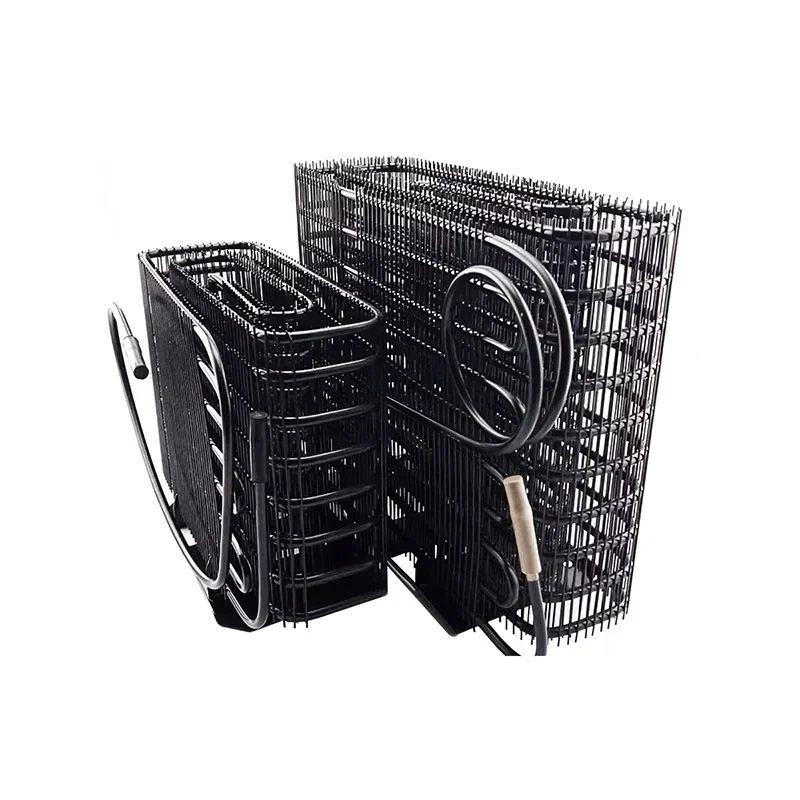Wire-tube condenser selection and purchase guide

Wire-tube condensers are an essential component in many industrial processes, including refrigeration, air conditioning, and power generation. They play a vital role in transferring heat from a hot fluid to a cooler fluid, enabling efficient heat exchange. Selecting the right wire-tube condenser for your specific needs is critical to ensuring optimum performance and energy efficiency. In this article, we will provide a comprehensive guide to selecting and purchasing a wire-tube condenser.

Know your requirements:
Before beginning the selection process, it is important to understand your specific requirements. Consider factors such as application type, heat load, operating conditions, and space constraints. This will help you determine the size, capacity, and configuration of the wire-tube condenser that best suits your needs.
Dimensions and capacity:
The size and capacity of the wire-tube condenser are key factors to consider. The cooling capacity should match the heat load of its expected system. It is important to calculate the heat load accurately by considering factors such as the temperature difference between the hot and cold fluids, the flow rate, and the specific heat capacity of the fluids. Oversizing or undersizing the condenser will result in inefficient heat transfer and increased energy consumption.
Material selection:
The choice of wire-tube condenser material depends on the specific application and the properties of the fluids involved. Copper is a popular choice due to its excellent thermal conductivity and corrosion resistance. Aluminum is a more cost-effective option, but it has a lower thermal conductivity and is more prone to corrosion. For applications involving corrosive fluids, stainless steel may be the first choice. Consider material compatibility with the fluid and any potential chemical reactions that may occur.
Design considerations:
The design of a wire-tube condenser can significantly affect its performance. Factors such as tube diameter, tube layout (parallel or helical), and fin density should be carefully considered. Smaller tube diameters and higher fin densities increase the heat transfer surface area and thus improve efficiency. However, these factors also increase the pressure drop and require more energy to pump the fluid through the condenser. Strike a balance between heat transfer efficiency and energy consumption.
Energy efficiency:
Energy efficiency is an important consideration when selecting a wire-tube condenser. Look for condensers with features like enhanced surface coatings, turbulators, or micro-channel designs to promote better heat transfer. These features increase the overall efficiency of the condenser and reduce energy consumption. Also, consider using a variable speed drive or control to optimize the operation of the condenser based on the cooling needs of the system.
Determine the cost:
Cost is an important consideration when purchasing a wire-tube condenser. However, it should not be the only determining factor. While it may be tempting to opt for a less expensive option, compromises in quality can lead to higher energy consumption, frequent breakdowns, and increased maintenance costs. Consider the overall value and long-term benefits of the condenser, not just the upfront cost.
Maintenance and serviceability:
Finally, consider the maintenance and applicability aspects of the wire-tube condenser. Look for condensers that are easy to clean and maintain, with accessible tubes and fins. Regular cleaning and maintenance are essential to prevent dirt and ensure peak performance. Also, consider the availability of spare parts and the manufacturer's reputation for after-sales support.
In summary, selecting and purchasing a suitable wire-tube condenser requires careful consideration of various factors such as application requirements, size and capacity, material selection, design considerations, energy efficiency, and maintenance. By following this guide, you can make an informed decision and select a condenser that meets your specific needs, ensuring efficient heat transfer and optimum performance in your industrial process.
How to choose the right wire tube condenser?
Different types of wire tube condensers
How to choose a refrigeration wire tube condenser?
Advantages and application fields of wire-tube condenser
Manufacturing process and material selection of wire-tube condenser
https://www.ningbo-senjun.com/Wire-tube-condenser-selection-and-purchase-guide.html
- Art
- Causes
- Crafts
- Dance
- Drinks
- Film
- Fitness
- Food
- Παιχνίδια
- Gardening
- Health
- Κεντρική Σελίδα
- Literature
- Music
- Networking
- άλλο
- Party
- Religion
- Shopping
- Sports
- Theater
- Wellness


